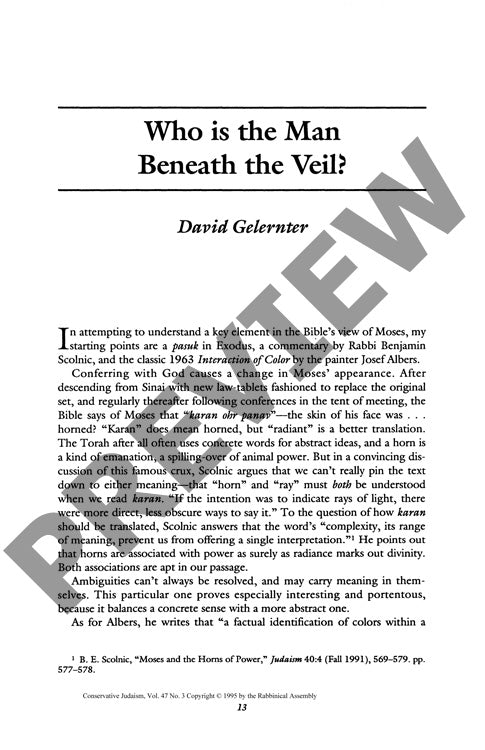Who Is the Man Beneath the Veil
Couldn't load pickup availability
Moses' recurring acts of concealment - from his hidden birth to his veiled face to his unknown burial site - reveal a profound theological pattern within the biblical narrative. By analyzing the ambiguous Hebrew term "karan" in Exodus 34:29-35, which carries dual meanings of "horned" and "radiant," alongside Josef Albers' principles of color interaction, this research uncovers how background elements shape biblical interpretation. The analysis combines Rabbi Benjamin Scolnic's textual commentary with literary criticism to demonstrate that Moses functions as an inverted image of the unknowable yet personal God. Through a "low-focus" narrative style, emotional themes operate as background harmonics rather than explicit surface meanings, culminating in the veil story where divine proximity, radiance, and concealment intersect. The findings indicate that biblical texts employ harmonic rather than linear structures, where meaning emerges through emotional resonance instead of logical progression. This interpretative framework suggests that understanding the Bible's theological and psychological dimensions requires attention to these subtle background patterns that mirror the fundamental tension between God's abstract and concrete nature.

More Information
-
Physical Description
-
Publication Information
Published 1995
ISBN
-
Publication Credits
David Gelernter

